The School of Journalism and Communication(SJC) and Institute of Logic and Cognition of Zhongshan University co-hosted the 2nd Interdisciplinary Symposium on “Argumentation, Journalism and Communication” on October 31st.
Zhou Yong, Executive Dean of the SJC, said today’s society is characterized by pluralistic public opinion, and social consensus is increasingly difficult to reach, especially in cross-cultural and international communication. In addition to cultural differences, disagreement also has a lot to do with differences in mentality and lack of logic. It is difficult to fully explain this problem within the discipline of journalism and communication, so it is necessary to start interdisciplinary research and cooperation. Zhou said he hoped that this symposium would promote the development of interdisciplinary cooperation between the fields of logic and journalism and communication.
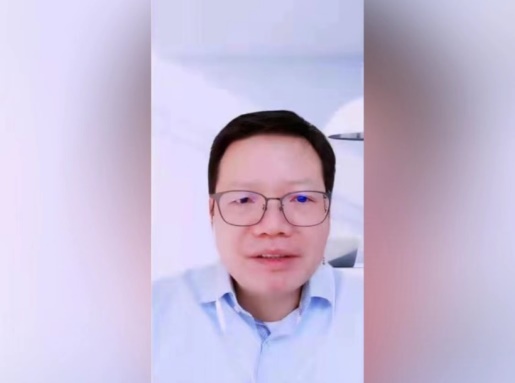
Ju Shier, Director of the Institute of Logic and Cognition of Zhongshan University, said “reasoning” is an interdisciplinary matter that requires not only rules of argumentation and logic, but also the unique nature of disciplines such as journalism, communication and political science. Therefore, he said he hoped all attendees could continue to find things in common among different disciplines, work together to solve problems and promote the development of each discipline through .
In his presentation titled “The Structure and Process of Argumentation”,Ju said the broad theory of argumentation considers it as a dynamic social interaction with persuasiveness in a socio-cultural context, on which its means and rationality depend. Argumentation research, however, aims to explore new means of argumentation by going deeper into the argument and obtaining the social norms for forming arguments, and evaluating and designing arguments for specific socio-cultural groups based on such norms. Thus, broad argumentation theory is suitable for discovering and describing the argumentation styles of different socio-cultural groups. In contrast, the mainstream theory mainly reconstructs the argumentation of the dominant cultural group in specific circumstances. Therefore, when adopting mainstream theory, the socio-cultural context in which argumentation occurs must be identified in advance.
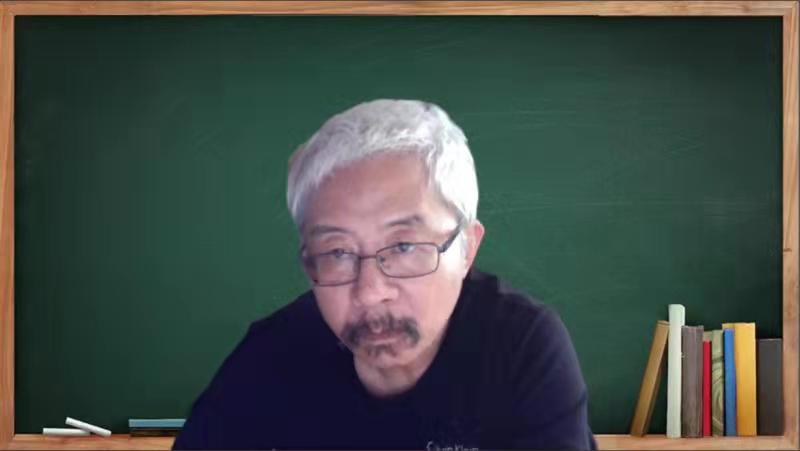
Then, Professor Lin Shengdong from the SJC summarized the existing crossover research in the field of journalism and communication and logic, and also introduced his team's exploration in this area, including the differences between Chinese and Western advertising texts on metaphorical persuasion, and the differences between Chinese and Western classical persuasion logic. Finally, he discussed the application of generalized argumentation theory in journalism and communication, pointing out that the bottom-up case study method adopted by generalized argument is applicable to the exploration of local logic and persuasion rules in Chinese journalism and communication practice.
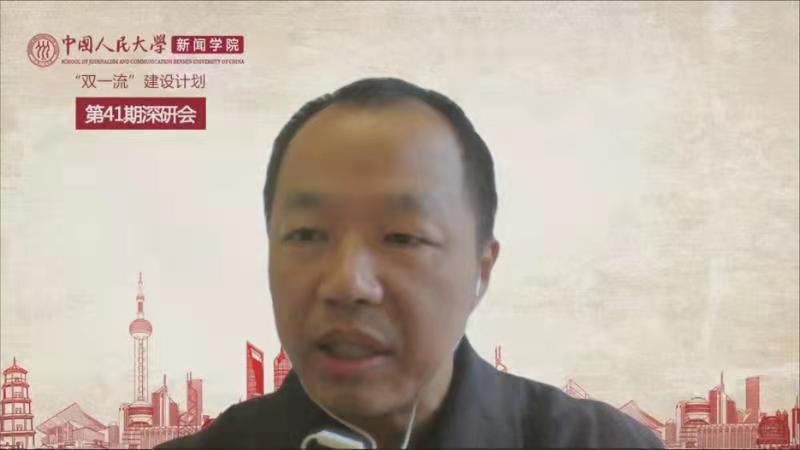
Professor Yang Xianshun from the Institute of Communication and National Governance of Jinan University discussed some Problems of Scalar Conversational Implicature: A Discourse Meaning from Interpersonal Communication”. Based on the perspective of discourse logic, he raised three questions: Is scalar conversational implicature a statutory one or a non-statutory one? Can it be produced by a scalar that does not have an implicative relation? Can the same scalar conversational implicature be produced by words in Horn scalars appearing in different positions of the sentence? He also presented critical thoughts on each question with examples and questioned some views in academia.
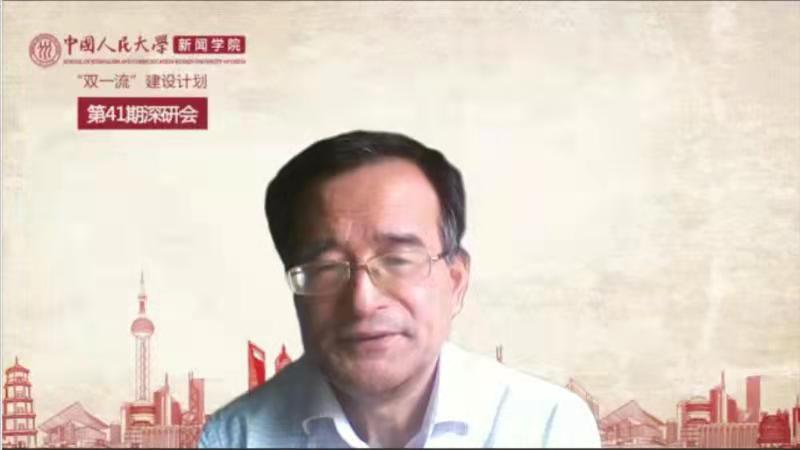
Chen Yanjin from the School of Journalism and Communication of Jinan University shared her and Professor Ju’s research “An Approach to the Identification of Argumentation in Crisis Communication Context”. She first introduced the characteristics of crisis communication contexts and the three major goals of crisis communication subjects, and compared two argumentation methods based on theory-driven discourse argumentation and data-driven generalized argumentation with the crisis response case of KLM Royal Dutch Airlines. She pointed out that generalized argumentation is applicable to both straightforwardly stating strong conflict texts and mining weak conflict texts in dynamic contexts, and the argumentation recognition under this approach emphasizes the influence of target and genre factors, and is a “bottom-up” description of argumentation that is not model-dependent.

Zeng Chi, a postdoctoral fellow from the SJC, shared his views on the topic of “Not Lying and Speaking the Truth: The Ethics of Speech in Epidemic Politics”. Based on the perspective of ethics, he discussed from the analysis of ambiguous speech in epidemic politics, the ethical requirement of sincerity, the unsuitability of the concept of the lie as an analytical tool to cut through ambiguous speech, the questioning of the traditional definition of the lie, the difference between not lying and telling the truth, how to tell the truth in politics, and from argumentation to ethics. Hepointed out that epidemic politics in China still demands proactive and positive ethics of discourse.

Yang Ying, assistant professor of the School of Journalism and Communication of Xiamen University, presented her article “Research on Chinese Short Video for Foreign Communication - A Dialogue Invitation Perspective” in collaboration with Professor Paul van Den Hoven. From the perspective of communication and argumentation research, the report pointed out that short videos should be regarded as a kind of promotion that sincerely invites audiences to participate in a dialogue, otherwise it risks being viewed as propaganda with negative implications. The report thus proposed five criteria for assessing the promotional nature of Chinese foreign communication short video discourse, and applied them to the analysis and evaluation of specific foreign communication short video cases.
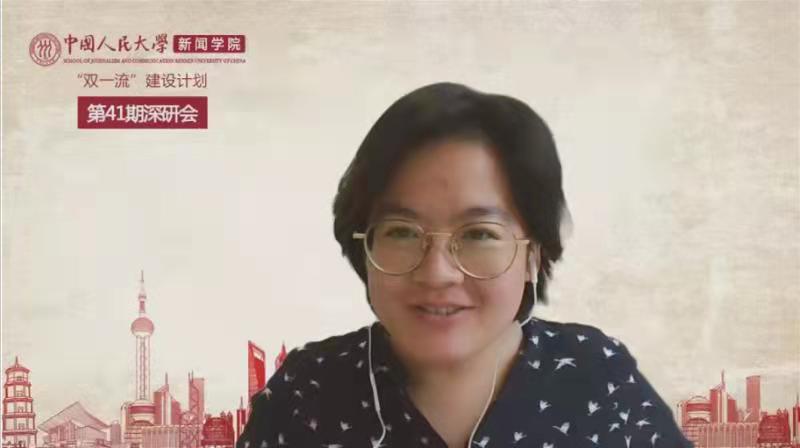
All attendees discussed “How to verify the effectiveness of the five criteria for the promotion of discourse”, “How to make better use of local academic resources in the construction of Chinese discourse” etc. in the discussion section.
Xuan Changchun, assistant professor at the School of Journalism and Communication of Xiamen University, gave a presentation on “Form and Intention: A Case Study and Empirical Test of Chinese and Western Persuasion Logic”, which explained the differences between Chinese and Western persuasion logic through cases and experimental argumentations. Xuan argued that cultural frameworks could affect the preference of persuasion styles.
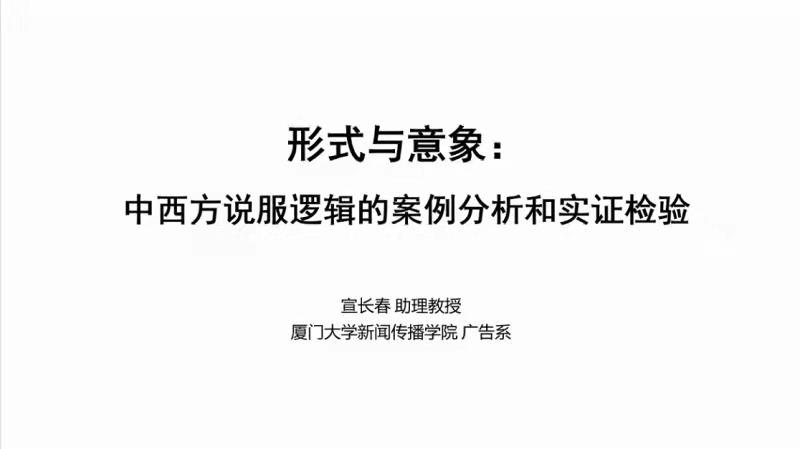
Hristo Valchev, an assistant researcher of the Institute of Logic and Cognition of Zhongshan University, reported on his paper “A Study of the Phenomenon of Cultural Embeddedness in the Argumentation for Bulgarian Ratification of the Istanbul Convention”, which was written in collaboration with Chen Zhixi. They analyzed the governmental argumentation as well as the public argumentation for the Bulgarian ratification of the Convention. Their paper concluded that there are conflicts between postmodern culture and modern culture as well as between postmodern culture and traditional culture in the process of the EU integration in Bulgaria by using the localization research method of generalized argumentation theory.

Li Weijuan, a doctoral student of the School of Journalism and Communication of Xiamen University, presented on “Intercultural texts of early Chinese and Western humor from a philosophical perspective”, which took a close look at early Chinese and Western jokes and summarized four cultural differences between Chinese and Western humor from the perspective of Chinese and Western philosophy and culture. According to Li, the most important difference is that most of the Western texts focused on logical fallacies, while the Chinese focused on systematic philosophical revelation, which provided a reference for understanding Chinese and Western cultures from the perspective of “laughter”.
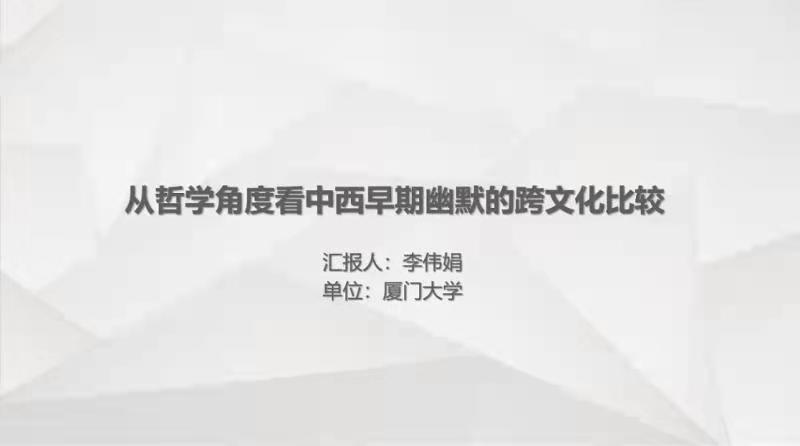
After that, participants from different disciplines used interdisciplinarymethods to make multi-dimensional argumentations on some real issues. Liao Yanlin, an assistant researcher of the Institute of Logic and Cognition of Zhongshan University, gave a presentation on “Ethical Reflection on ‘Argumentative Games’ - A Perspective Based on Virtue Argumentation Theory”. His analysis showed that competitive debates do not make participants violate the virtue of argumentation, so the ethical problems alleged by critics cannot be established.
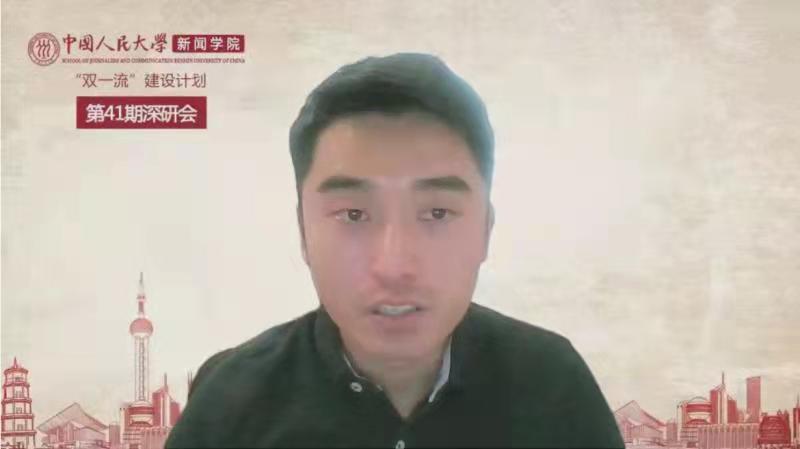
Yu Shiyang, an assistant researcher from the School of Philosophy of Nankai University, reported on his joint research with Frank Zenker - “A scheme and critical questions for the argumentum ad baculum”. In his report, he showed the composition and elements of the final solution by discussing the specific connection between the argumentative and speech act approaches and the integrating theoretical basis. The deconstruction of recourse to threatening forms of argumentation and evaluation systems provided a new perspective for communication-related research and evaluation of advertising effectiveness.
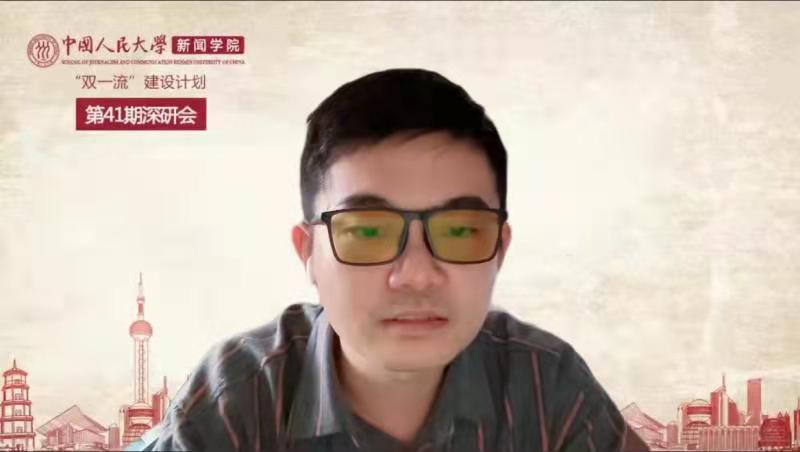
Lv Xue, a graduate student from the School of Humanities of Communication University of China, gave a presentation on “Analysis of the logical relationship between background/foreground of news reports”. Lv combined the theory of “foreground/background” in cognitive pragmatics and Dutch scholar Van Dijk's theory of news discourse analysis to analyze the news reporting materials of People's Daily. She provided a practical reference value for journalists to carry out news writing.
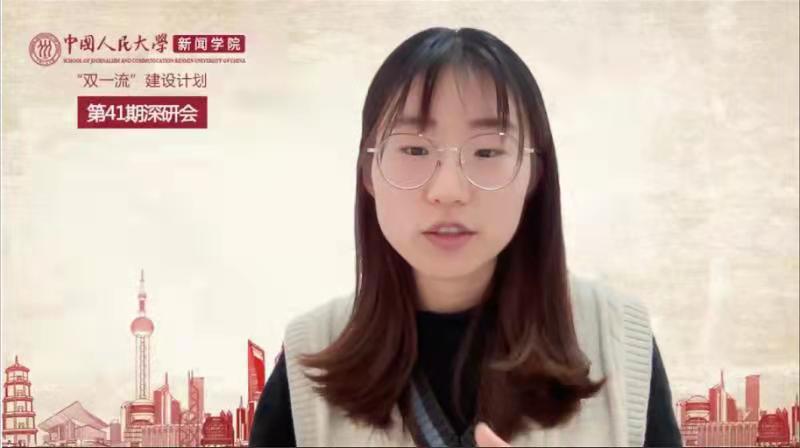
Luo Jiayi, an undergraduate student at the School of Public Administration, Guangzhou University, shared “A New Exploration of the Analysis and Evaluation Methods of Slogans in the Era of Online Communication - From the Perspective of Argumentation Interaction” (a collaborative work of Chen Qingcheng and Luo Jiayi). Based on the context of social change, Luo analyzed the argumentation structure, type and evaluation of persuasive epidemic prevention slogans disseminated on the Internet during 2020-2021 from the perspective of argumentation interaction, and described their applicability and characteristics.

After the keynote speech, all experts and scholars had a roundtable discussion on “How to find problems in reality in the generalized argumentation”, “Establishing a top-down theoretical system or bottom-up rules of reasoning”, “How generalized argumentation can better interact with journalism and communication” and etc. According to Ju, generalized argumentation studies the cultural norms of groups and the rules of life, emphasizing communication and cooperation. He argued that researchers should look for problems and social rules that can be deeply explored in daily life, especially where they have a deep understanding of the local area.
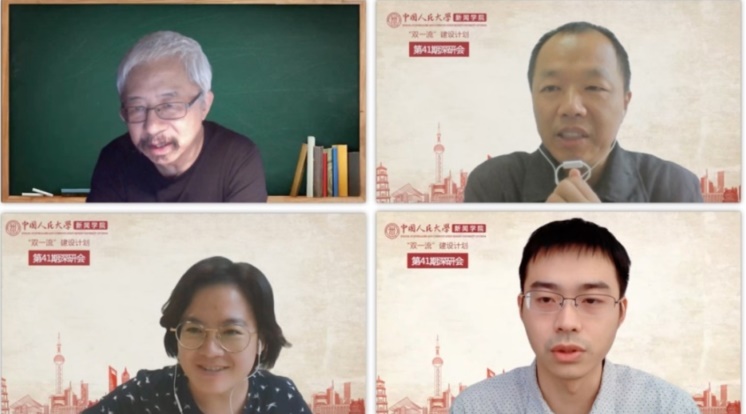
Lin thanked the 13 speakers for their presentations. He pointed out that interdisciplinary exchanges had provided valuable ideas and inspirations for research related to journalism and communication, and were of great significance in promoting interdisciplinary development and deep integration and exploring the future direction of interdisciplinary collaboration . Lin welcomed all attendees to contribute to the next symposium on “Argumentation, Journalism and Communication”.
Author: Yin Xiuyun, Yang Yiqian
Photo by: Yin Xiuyun, Yang Yiqian
Translator: Wang Xi
Editor: Xu Yiwen,Wang Daosheng



